- in Mental Health by Tony
Taking Control of Your Mental Health: A Patient’s Guide
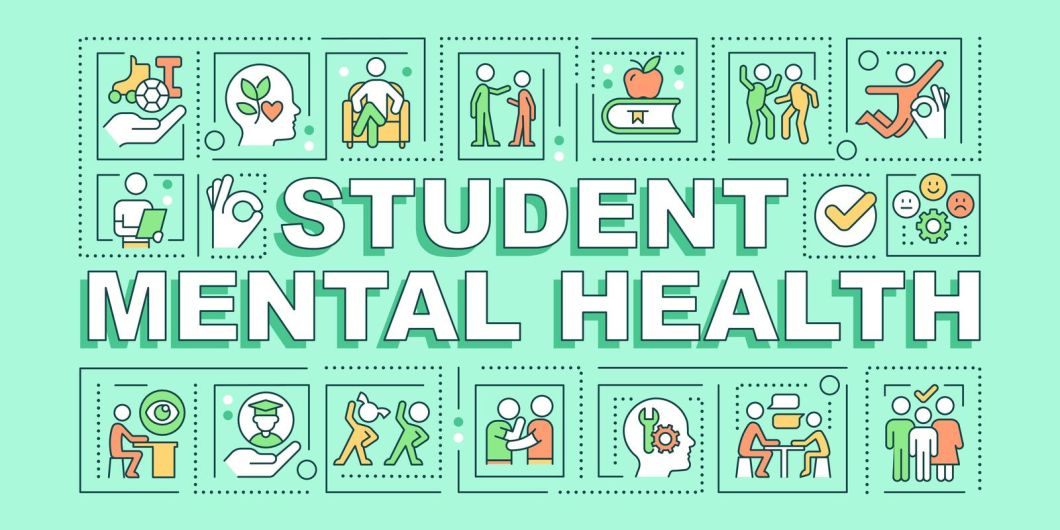
Welcome to Taking Control of Your Mental Health: A Patient's Guide. This article is designed to provide students with information and offer you guidance you may need to take control of your mental health in your life.
Mental health is a complex and often misunderstood issue. It can be difficult to identify and understand the full range of emotions and experiences that can make up our mental health.
An individual’s personality traits define how they perceive the world around them. It is a set of characteristics and features that cause them to think, feel, and behave in a particular way. We aim to provide a comprehensive overview of mental health and how to best manage it.
More...
We will start by introducing the concept of mental health and the various aspects of it. We will then discuss the different types of mental health disorders and illnesses, and how they can be identified and managed. Furthermore, we will also explore the role of medication and other treatments in managing mental health, and look at the importance of lifestyle factors.
Finally, we will discuss the importance of seeking help and support from your healthcare team, and how to access the services that can help you manage your mental health.
By the end of this report, you will have the knowledge and resources necessary to take control of your mental health and your life. We hope that this piece will provide you with the understanding and support you need to manage your mental health and live a happier, more fulfilled life.
Understanding Mental Health
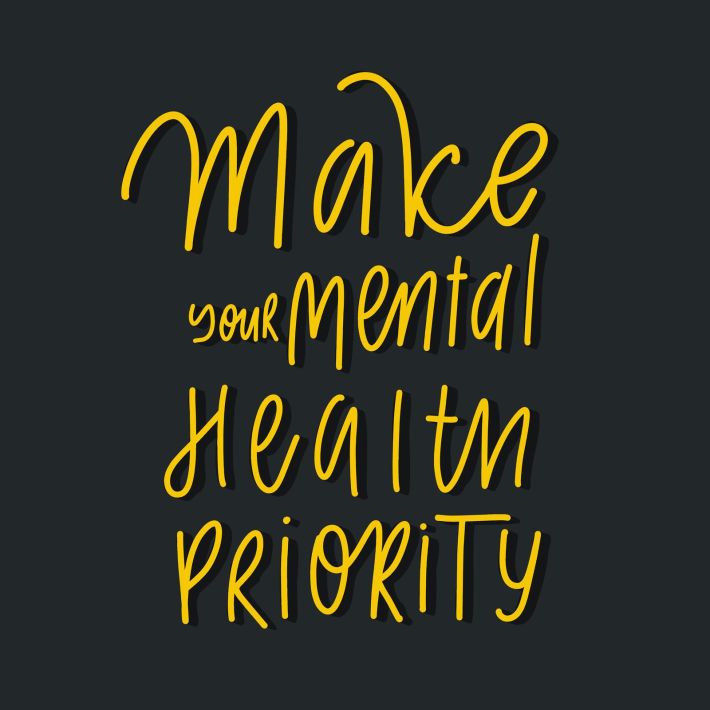
Defining Mental Health
Mental health is an important part of our overall health and wellbeing. It refers to our psychological, emotional and social wellbeing, and how we think, feel and act. It affects how we cope with stress, relate to others and make decisions.
When someone has good mental health, they’re able to think clearly, express their feelings, manage their own behaviour, and interact positively with others. Whereas, when it comes to mental health, behaviour plays an important role in both the development and management of symptoms.
Mental health is complex, and it’s not always easy to define. It’s not just the absence of mental illness, but also the presence of positive attributes. It’s important to recognise that mental health is something that’s constantly changing and evolving.
Mental illness, on the other hand, is a diagnosable mental health condition that can affect a person’s thinking, behaviour, mood and ability to relate to others. Mental illness is often characterised by a combination of symptoms, such as low mood, difficulty concentrating, disturbed sleep, excessive worry, and feelings of helplessness, guilt or worthlessness.
There are many different types of mental illness, ranging from mild to severe, including depression, anxiety, bipolar disorder, schizophrenia, and obsessive-compulsive disorder. Mental illness often requires medical treatment and emotional support.
It’s important to remember that mental health is not the same as mental illness. Mental health is a spectrum, and everyone has mental health. We all experience different levels of mental wellbeing at different times, and mental health can change over time. Mental illness is not something that you can “catch” like a cold, and it’s not something that you can always predict or prevent.
It’s essential for everyone to understand the importance of mental health and to learn how to look after their mental wellbeing. Managing stress, getting enough sleep, eating well, taking time out for yourself and engaging in activities that make you feel good are all important steps towards improving your mental health.
By understanding and taking control of your mental health, you can live a more fulfilling and meaningful life. It’s important to remember that mental health is something that we all have, and it’s something we should all strive to maintain.
Mental illness can be caused by a variety of medical conditions, including physical ailments such as heart disease and diabetes, neurological disorders such as Alzheimer’s disease or Parkinson’s disease, endocrine diseases such as thyroid dysfunction, and immune disorders such as HIV/AIDS. Additionally, post-traumatic stress disorder (PTSD) is often a result of experiencing traumatic events.
Mental illnesses are often treated with medications, psychotherapy, or a combination of both. It is important that individuals get screened for mental health issues as soon as any changes in behaviour or emotions occur to ensure that treatment is provided in a timely manner and increases the possibility of recovery.
Developmental disability
Developmental disability refers to a group of conditions that affect an individual's physical, cognitive, and/or behavioural development. It is typically diagnosed during childhood and can result in challenges in areas such as communication, social interaction, learning, self-care, and independent living skills. Developmental disabilities are often caused by genetic or environmental factors and require ongoing support and interventions to promote optimal functioning.
Developmental disability can also be categorised as any disability that requires treatment for disorders such as autism, cerebral palsy, Prader-Willi syndrome, epilepsy, or related disorders. It also includes intellectual disabilities and those caused by injuries to the brain.
Individuals with developmental or intellectual disabilities deserve to live meaningful lives in our community, and it is our goal to facilitate this to the best of our ability.
We aim to enhance independence, self-sufficiency, productivity, support and encourage community inclusion.
The Different Types of Mental Health
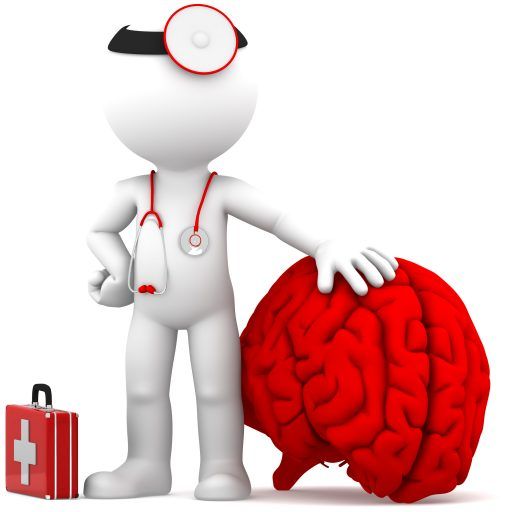
Mental health is an incredibly important topic that affects everyone, but there are a variety of mental health issues that people may experience. It is important for those who suffer from mental health issues to understand the different types of mental health and the various ways in which they can be addressed.
This chapter will provide an overview of the different types of mental health, their symptoms, and how they can be managed. The most common type of mental health is depression.
Feeling sad is an emotional state and a common human emotion that can range from mild disappointment to deep despair. Sadness can be triggered by many events or situations such as grief, loss, or illness. Other causes of sadness are changes in hormonal levels and personal beliefs.
People who experience sadness may exhibit physical, mental, and emotional signs such as lack of energy, difficulty sleeping or concentrating, a decreased appetite, feelings of hopelessness or helplessness, and irritability.
Depression is characterised by feelings of sadness, hopelessness, guilt, and low self-esteem. People with depression may also experience changes in their appetite or sleep patterns, or feel tired and unmotivated. Treatment for depression may include medication, psychotherapy, or lifestyle changes.
Anxiety is one of the most common mental health conditions, affecting people of all ages. Signs and symptoms of anxiety can include feelings of panic, worry, restlessness, excessive stress, fear or apprehension. People with a phobia have an overpowering need to avoid anything that triggers their anxiety. It can interfere with daily activities such as work or school and have a negative impact on relationships.
Anxiety can lead to physical symptoms such as difficulty sleeping or an upset stomach. If left untreated, it can become debilitating, causing difficulty functioning in everyday situations and even leading to depression in some cases. Treatment for anxiety may include medication, psychotherapy, or lifestyle changes.
Bipolar disorder is another type of mental health. This disorder is characterised by extreme swings in mood, energy levels, and behaviour. People with bipolar disorder may experience extreme highs and lows in mood, and may also have difficulty with concentration and decision-making. Treatment for bipolar disorder may include medication, psychotherapy, or lifestyle changes.
Obsessive-compulsive disorder (OCD) is another type of mental health. People with OCD have unwanted and intrusive thoughts and feelings that may cause them to engage in repetitive behaviours or rituals. Treatment for OCD may include medication, psychotherapy, or lifestyle changes.
Post-traumatic stress disorder (PTSD) is another type of mental health. People with PTSD have experienced or witnessed a traumatic event and may experience flashbacks, nightmares, or intense feelings of fear. Treatment for a post-traumatic stress disorder may include medication, psychotherapy, or lifestyle changes.
Finally, eating disorders are another type of mental health. Eating disorders are characterised by an unhealthy relationship with food and body image, and may include behaviours such as binge-eating or extreme dieting. Treatment for eating disorders may include medication, psychotherapy, or lifestyle changes.
It is important to understand that mental health is a complex issue, and each type of mental health may require different types of treatment. Knowing the different types of mental health, their symptoms, and how they can be managed, can help you take control of your mental health and achieve a more balanced life.
Signs and Symptoms of Mental Health Issues
Mental health issues can manifest in many different ways, both physically and emotionally. It is important to be aware of the signs and symptoms of mental health issues in order to take the necessary steps to address them.
Common signs and symptoms of mental health issues may include:

It is also important to be aware of the signs and symptoms of mental health issues in those around you. If you notice any of these signs and symptoms in a loved one, reach out and offer your support. Encourage them to seek professional help if necessary.
Taking control of your mental health is an essential part of maintaining a healthy lifestyle. If you are experiencing signs and symptoms of mental health issues, it is important to take action. Talk to a trusted friend or family member and seek professional help if necessary.
Causes of Mental Health Issues
Mental health issues can be caused by a variety of factors. In this section, we will explore the different causes of mental health issues, in order to better understand and take control of our mental health.
The most common cause of mental health issues is stress. Stress can come from numerous sources, including a traumatic event, financial strain, relationship difficulties, or a significant life change.
Stress can create an overwhelming feeling of helplessness and hopelessness, which can then lead to a mental health issue.
Another cause of mental health issues is genetics.
Mental health conditions can be inherited from parents or other family members. Additionally, some mental health issues can be caused by a chemical imbalance in the brain, which can be due to both environmental and genetic factors. Substance abuse is another cause of mental health issues.
Drugs and alcohol can have a profound effect on our mental health, leading to depression, anxiety, and other mental health issues.
Substance abuse can also trigger pre-existing mental health issues, or even create new ones.
Social isolation is yet another cause of mental health issues. When we feel isolated from those around us, it can lead to feelings of loneliness, sadness, and anxiety. This can then lead to more serious mental health problems.
Postnatal depression: Loneliness can often contribute to depression in expectant and new mothers, finds a new review of evidence by University College London. Having a baby is a period of huge transition and upheaval, that can involve losing touch with people and existing networks, such as work colleagues. This research suggests that loneliness is a major risk for mental health problems during pregnancy and for new mothers.
Healthcare professionals also have an important role to play in helping women to feel heard and validated in their experiences of loneliness
Depression is common during the perinatal period, affecting one in six pregnant women and one in five women during the first three months after birth, (Baby blues) and can significantly affect new parents' quality of life and can have long-term adverse impacts on their child's cognitive and emotional development.
Finally, medical conditions can also be a cause of mental health issues. Sometimes, medical conditions can cause physical symptoms that can then go onto trigger mental health issues, such as depression, anxiety, or post-traumatic stress disorder.
These are just some of the causes of mental health issues. It is important to be aware of these causes, in order to better understand and take control of our mental health. By learning more about the causes of mental health issues, we can better identify potential triggers, and take steps to manage and prevent mental health issues.
Biological Factors
Biological factors are one of the most important components of mental health. While many mental health issues stem from external factors, such as an individual's environment or lifestyle, biological factors can also play a significant role.
The biological makeup of an individual can have a direct impact on their mental health. For example, a person's genetics can influence their risk for certain mental health conditions. Additionally, hormones and neurotransmitters, which affect the communication between cells in the body, can also impact mental health.
In addition to the biological makeup of an individual, environmental factors can also play a role in mental health. Exposure to pollutants, toxins, and radiation can affect the way the body functions, potentially leading to mental health issues. Additionally, physical trauma, such as a head injury, or concussions, can also have an effect on mental health.
It is important to understand the biological factors that may be affecting an individual's mental health. By doing so, individuals can determine which treatments and lifestyle changes may help them manage their mental health. Additionally, it is important to talk to a doctor or mental health provider if you are concerned about the potential impact of biological factors on your mental health.
In summary, biological factors can have a significant impact on an individual's mental health. It is important to understand the biological makeup of an individual, as well as any environmental factors that may be influencing their mental health.
Additionally, consulting with a doctor or mental health provider is essential if you are concerned about how biological factors may be impacting your mental health.
Environmental Factors

The environment can have a significant impact on our mental health, both positively and negatively. Stressful environments can trigger mental health issues, while calming environments can help us to manage our mental health. Therefore, it is important to be mindful of the environment that we live and work in, and to create a positive environment which supports our mental health.
There are several aspects of our environment that can affect our mental health. One of the most important aspects is the amount of natural light in the environment. A lack of natural light, can lead to a feeling of depression and fatigue, while an abundance of natural light can help to lift our mood and energise us.
Studies suggest that exposure to natural sunlight can boost your body's vitamin D levels and help better regulate melatonin production, both of which play an important role in maintaining good health.
Seasonal Affective Disorder (SAD) is a type of depression that is related to changes in season. People with SAD tend to develop symptoms of depression during the same season each year, usually during fall or winter.
Symptoms of SAD may include feeling depressed, low energy levels, sleep problems, weight gain, reduced libido, and craving carbohydrates. Treatment often includes light therapy and cognitive behavioural therapy designed to help people recognise and change negative thinking patterns.
Natural light is the light provided to us by the sun. A lack of natural light can be caused by poor building design, indoor blinds and curtains that block out natural light, or a location that does not receive sun for some part of the day. This lack of natural light can cause people to feel tired and sluggish due to a decrease in serotonin levels, an inability to properly regulate their circadian rhythm, and generally poorer mental health.
We can therefore increase the amount of natural light in our homes and workplaces by opening curtains and windows, or placing mirrors around a room to reflect natural light.
Another important aspect of our environment is the amount of time we spend outdoors. Spending time outdoors in green spaces can help us to relax, reduce stress, and improve our mood. We can also benefit from the fresh air and exercise that outdoor activities provide. To make sure that we get enough time outdoors, we can plan regular outdoor activities, such as walks in the park, hikes, or picnics.
Air pollution is linked to mental health problems with researchers in Denmark and the United States (US) found that people in Denmark who grew up in more polluted areas were more likely to develop depression, bipolar disorder, schizophrenia or personality disorder.
A third aspect of our environment is the amount of noise we are exposed to. Noise pollution is any excessive, unpleasant or disruptive sound that can disturb the activity or balance of human and animal life. Sources of noise pollution can be both natural and man-made. Common sources include engines, construction sites, music festivals, aircraft and more.
Noise pollution can have negative physical and psychological effects on people, as well as interfere with communication, sleep, work productivity and disrupt the natural cycle of wildlife.
Exposure to loud and constant noise can increase stress levels and lead to mental health issues. We can reduce the amount of noise in our environment by using noise-canceling headphones, or by repositioning furniture to help block out noise.
Finally, the amount of clutter in our environment can also affect our mental health. Clutter can add to stress levels, as it can make us feel overwhelmed and disorganised. To reduce clutter in our environment, we can create a weekly cleaning routine, or invest in storage solutions for items that we need to keep.
Creating an environment that supports our mental health is an important step towards taking control of our mental health. By understanding the impact of environmental factors on our mental health and making changes to create a positive environment, we can make sure that our environment helps us to manage our mental health.
Life Experiences

Your life experiences can greatly affect your mental health. It is important to understand the impact of both positive and negative experiences, and to learn how to use them to improve your mental health.
Positive experiences can be anything that brings you joy and contentment. These could include activities such as spending time with loved ones, taking time to relax, or engaging in hobbies that you enjoy. By taking time to appreciate the positive things in your life, you can boost your mental health.
On the other hand, negative experiences can take a toll on your mental health. These could include physical or emotional trauma, illness, or loss. It is important to recognise the impact these experiences may have on your mental health, and to focus on self-care and supportive relationships.
It is also important to be mindful of how your life experiences can shape your beliefs and attitudes. For example, if you had a particularly negative experience at school, it may lead to feelings of insecurity or a lack of self-confidence. By recognising these experiences, you can take steps to challenge any negative beliefs that may be holding you back.
Finally, it is important to remember that life is not static. Even if you have had experiences in the past that have had a negative impact on your mental health, there is still hope for a brighter future. By learning how to use your experiences to your advantage, you can move forward in a positive direction and take control of your mental health.
Developing Positive Coping Strategies
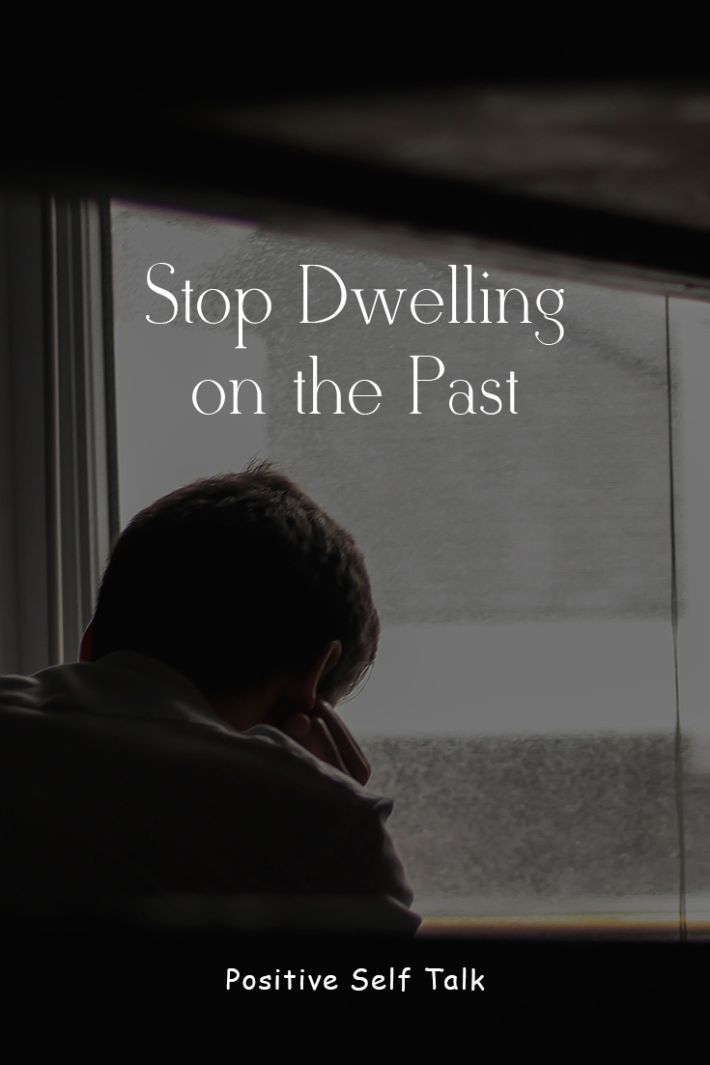
When it comes to managing your mental health, developing positive coping strategies is essential. Coping strategies are the tools and techniques used to manage stress and difficult emotions. They can help you to better understand and manage your mental health condition. When developing positive coping strategies, it is important to focus on the present moment and not dwell on the past.
Focusing on the present can help reduce feelings of anxiety and depression. It can also help you to better manage your mental health symptoms.
One way to develop positive coping strategies is to practice mindfulness. This involves paying attention to your thoughts and feeling in the moment without judgment. Paying attention to your thoughts and senses can help you to identify triggers for your mental health symptoms and develop strategies for managing them.
Another way to develop positive coping strategies is to practice relaxation techniques. These include activities such as deep breathing, progressive muscle relaxation, and guided imagery. These techniques can help you to reduce stress and improve your overall mental health.
It is also important to develop positive coping strategies that involve physical activity. Exercise can help to reduce tension and anxiety and can improve your overall mental health. It is important to find activities that you enjoy and can do regularly.
Finally, it is important to discover ways to connect with others. This could involve participating in social activities, joining a support group, or talking to a mental health professional. Connecting with others can help you to feel supported and understood, which can help to improve your mental health.
Developing positive coping strategies is essential for managing your mental health. It can help you to better understand and manage your mental health condition. It is important to focus on the present moment, practice mindfulness and relaxation techniques, engage in physical activity, and connect with others. By doing so, you can improve your emotional health and take control of your mental health.
Deep Breathing Exercises

Deep breathing exercises can help you take control of your mental health and reduce stress.
Deep breathing helps to bring oxygen into the body and can calm the mind, improve concentration, and reduce anxiety.
Start by sitting in a comfortable position.
Place one hand on your stomach and the other on your chest.
Take a deep breath in through your nose, deep enough to make your stomach expand. Feel the breath fill your lungs and focus on the sensation of your stomach moving as you inhale.
Exhale slowly and evenly through your mouth, pushing all the air out of your lungs. As you exhale, feel your stomach deflate.
Concentrate on the sensation of the air leaving your body. Continue to breathe in and out slowly and evenly, focusing on the sensations of the breath. If your mind wanders, just bring it back to the focus of your breath.
To deepen the breath, extend the length of the inhale and exhale. As you practice, you may find that your breath becomes deeper and slower.
Deep breathing exercises can be done anywhere, at any time. Try to practice for at least five minutes each day, and gradually increase the length of time that you practice.
Deep breathing exercises can help you take control of your mental health by reducing stress and calming the mind.
Make sure to practice regularly and if you have any questions, ask your doctor or a mental health professional.
Mindfulness Practices
Mindfulness is a key part of taking control of your mental health, as it can help you to gain a greater understanding of your thoughts, emotions, and behaviours, and find calm and peace in the present moment.
This section will provide an overview of mindfulness and offer some practical tips and mindfulness practices that you can use to manage your mental health.
What is Mindfulness?

Living in the present moment means no longer worrying about what happened in the past and not fearing what will happen in the future. It is about noticing your thoughts and feelings as they come up and accepting them without making assumptions or judgments. It is a great way to become more aware of your thoughts and feelings, and to take control of your mental health.
Benefits of Mindfulness
Mindfulness can have many benefits for your mental health, such as reducing stress, improving mood, and increasing self-awareness. It can also help you to become more aware of the triggers that may cause negative thoughts or feelings and to manage them better.
Mindfulness Practices
There are many different mindfulness practices that you can use to take control of your mental health.
Here are some of the most popular mindfulness practices:
1. Mindful Breathing: Mindful breathing involves focusing your attention on your breath and counting your breaths as you inhale and exhale. This practice can help to reduce stress and anxiety and to gain a greater sense of calm.
2. Mindful Walking: Mindful walking involves taking a slow, mindful walk outdoors, paying attention to the sights, sounds, and sensations of the surrounding environment. This practice can help to reduce stress and enhance your ability to in the moment.
3. Body Scanning: Body scanning involves focusing on each part of your body and noticing any physical sensations or emotions that arise. This practice can help to reduce tension and become more aware of your body.
4. Guided Meditation: Guided meditation involves listening to a recorded meditation that guides you through a process of relaxation and awareness. This practice can help to reduce stress and anxiety and to gain a greater sense of calm.
Conclusion
Mindfulness can be a powerful tool for taking control of your mental health. It can help to reduce stress, improve mood, and increase self-awareness. There are many different mindfulness practices that you can use to take control of your mental health, so experiment and find the ones that work best for you.
Journaling

Journaling is a powerful tool for taking control of your mental health. It can help you identify, understand, and work through your thoughts, feelings, and experiences.
For those new to journaling, it can feel intimidating and overwhelming.
However, it doesn’t have to be overly complex or time-consuming. Keeping a journal can be as simple as writing down a few thoughts, or as detailed as creating a comprehensive daily log.
There is no “right” way to journal. The most important thing is to make it your own and find what works best for you. Here are some tips to get started.
• Choose the format that works best for you. This could be a physical notebook or an online document. You can even create a voice memo or video log.
• Set aside a few minutes each day to write. This can be in the morning, evening, or whenever works for you.
• Start with whatever comes to mind. Don’t worry about grammar or spelling. Just write what’s on your mind.
• Reflect on your day. What happened? How did you feel? What did you learn?
• Try free-writing. Set a timer and just write whatever comes to mind, without worrying about structure or organization.
• When you read over your journal entries, look for patterns. Are there certain situations that trigger certain thoughts or feelings?
Journaling can be a great way to take stock of your mental health. It can help you identify and process your thoughts and feelings, as well as provide insight into your overall wellbeing.
Give it a try and see if it works for you.
Building a Support System

Creating a support system is an essential component of taking control of your mental health. A supportive environment can make a huge difference in how you manage your mental health. It can provide you with the comfort of knowing that you are not alone in your struggles, and that you have people around you that are willing to help.
A good support system can consist of friends, family, and even professionals such as therapists or psychiatrists. When it comes to building a support system, it is important to identify who is available to you and what type of help they can offer.
Friends can be a great source of support. They can provide you with a listening ear and a shoulder to cry on. Having close friends who understand your mental health struggles can make you feel less isolated and more connected.
Family members can also provide you with unconditional love and support. They can be there for you when you need to talk, and provide an understanding and safe environment for you.
Therapists and psychiatrists can offer professional help and guidance in managing your mental health. A therapist can provide you with a non-judgmental environment to talk about your feelings, while a psychiatrist can provide you with a more in-depth assessment of your mental health and prescribe medication if needed.
Finding the right type of support can be a challenge. It is important to take your time to find the right people and resources to help you. You may need to try out different types of support until you find the right fit.
In addition to friends, family, and professionals, there are also social networks and online support groups available. Online forums, chat rooms, and message boards can provide a safe space to talk about your struggles and connect with others who are going through similar experiences.
Building a support system is an important part of taking control of your mental health. It can provide you with the comfort of knowing that you are not alone in your struggles, and that you have people around you that are willing to help. Take the time to identify who is available to you and find the right type of support for you.
Identifying Your Support System
When you are faced with mental health issues, having a strong support system can make all the difference. Identifying the people in your life who can help you through challenging times is essential to improving your mental health.
The people in your support system should be someone you trust and feel comfortable talking to. It can be helpful to have a mix of family, friends, and professionals in your support system. Family and friends can provide emotional support and understanding, while professionals, such as therapists and psychiatrists, can offer clinical guidance and advice.
When considering who to include in your support system, look for people who are understanding, patient, and supportive. You should also consider how much time and energy you are willing to devote to each person. It’s important to recognize that some people may be more reliable than others, and that’s okay.
When you are ready to reach out for support, start small. You don’t have to disclose the details of your mental health struggles if you don’t feel comfortable doing so. Instead, focus on building relationships with people who can provide you with compassion and understanding.
In addition to family and friends, there are a number of other sources of support you can explore. Online communities, such as support groups and forums, can provide you with a sense of community and a place to share your experiences. There are also hotlines and chat lines available 24/7 for those who need to talk at the moment.
Finally, don’t forget to extend your support system to yourself. Take time to practice self-care, engaging in activities that make you feel calm and relaxed. This can include yoga, meditation, journaling, and more. Having a strong support system is an important part of managing your mental health.
Identifying the people in your life who can provide you with emotional and clinical support can help you get through difficult times.
Don’t forget to extend your support system to yourself as well. Taking time to practice self-care can help you stay grounded and connected to yourself.
Reaching Out to Your Support System

When it comes to taking control of your mental health, it is important to reach out to your support system. Your support system can consist of family, friends, healthcare providers, or therapists that can help you stay on track with your mental health journey.
Reaching out to your support system can help you to stay motivated and on track with your mental health goals. It can also help you to feel less isolated, as you know that you have people that you can rely on for support and encouragement. Below are some tips for reaching out to your support system:
1. Acknowledge Your Support System: It is important to take time to recognise and appreciate the people in your life who have provided you with support. Let them know that you are grateful for their help and are thankful for them being there for you.
2. Communicate Your Needs: When you reach out to your support system, make sure to communicate what you need and expect of them. Make sure that they are aware of your mental health journey and the help and support you’re looking for.
3. Ask For Help: Don’t be afraid to ask for help when you’re feeling overwhelmed and need support. Your support system should be there for you and willing to help when needed.
4. Set Boundaries: Make sure that you set clear boundaries with your support system. This will help to ensure that you get the support you need, while also protecting yourself from any potential issues that could arise.
5. Stay Connected: Take the time to stay connected with your support system. Make sure that you check in and stay in touch, even when things are going well. This will help to keep your relationship strong and ensure that your support system is always there for you.
Reaching out to your support system can be a key component to taking control of your mental health. It is important to recognise and appreciate the people in your life who have helped you on your journey.
Make sure to communicate your needs, ask for help when needed, set boundaries, and stay connected. Doing so can help you to stay motivated and on track with your mental health journey.
Maintaining Healthy Relationships
Healthy relationships are essential to mental health. They can provide emotional support, stability, and help you to better cope with stress. Developing and maintaining healthy relationships are an important part of taking control of your mental health.
It can be difficult to know how to maintain healthy relationships, so here are some tips for success.
Connect with Others: Make sure to connect with people who have similar interests and values. This will help to foster a strong connection and provide a sense of belonging.
Communicate Openly and Honestly: Communication is essential for healthy relationships. Make sure to be open and honest with your friends and family. This will help to build trust and understanding between both parties.
Show Respect: Respect is key in any relationship. Respect the opinions, beliefs, and feelings of those around you.
Set Boundaries: It is important to set boundaries in any relationship. Make sure to communicate your boundaries to the other person and explain why they are important to you.
Be Supportive: Showing support for those around you is important for any healthy relationship. Whether it is offering emotional support or practical help, being there for someone when they need it can help strengthen the bond between you.
Be Flexible: Be willing to compromise and be open to change. This will help to ensure that both parties are happy and that the relationship can grow.
Be Positive: Have a positive outlook on life and the relationships you have. This will help to create a more positive environment and can help to improve relationships.
Take Responsibility: It is important to take responsibility for our actions and be accountable for our mistakes. This will help to build trust and understanding in any relationship.
These are just a few tips for maintaining healthy relationships. Taking control of your mental health means making sure to foster healthy relationships and taking the time to nurture them.
Seeking Professional Help
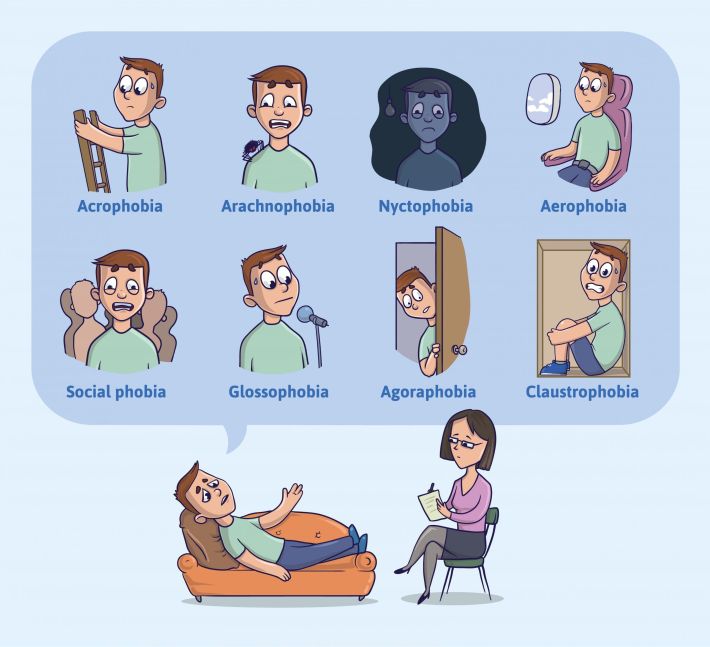
When it comes to taking control of your mental health, seeking professional help is a great option. Many people don’t realize how beneficial it can be to seek help from a mental health professional, such as a therapist, psychologist, or psychiatrist.
Therapy is often the first step in gaining control of your mental health. A good therapist will help you develop coping skills and learn how to manage stress and emotions. They can also provide support, guidance, and an understanding ear. If you're not sure where to start, ask your primary care doctor for a recommendation or look online for an accredited therapist in your area.
Psychologists can provide a more in-depth assessment of your mental health. They may use various tests to help them better understand your condition and provide more targeted treatments.
Psychologists may also use cognitive behavioural therapy (CBT) to help you address troubling behaviour patterns.
Psychiatrists are medical doctors who specialize in mental health. They can prescribe medications to help you manage your mental health. However, it is important to remember that medication is not a substitute for therapy. It is best to use medication in conjunction with therapy to get the most benefit.
When seeking professional help, it is important to find someone who you feel comfortable with and can trust. You should also be sure to ask questions to ensure that the therapist or psychiatrist is the right fit for you.
It is also beneficial to have a support system in place, such as family and friends, who can provide additional emotional support. No matter who you choose to seek professional help from, it is essential to remember that you are in control of your mental health.
You are the only one who can decide what is best for you and what treatments will work best. Taking control of your mental health begins with seeking professional help, so don’t be afraid to take the initial step.
Exploring Treatment Options

Now is not the time to bury your head in the sand but acknowledge the need to find appropriate help. Mental health treatment is an important part of taking control of your psychological health.
It can provide you with the tools and support you need to manage your mental health condition and make positive changes in your life.
When you start exploring treatment options, it’s important to know that there is no one-size-fits all approach. Different types of treatment can be effective for different people, depending on the type and severity of the condition, as well as individual preferences.
Treatment options may include psychotherapy, medication, or a combination of both.
Psychotherapy.
Psychotherapy, also known as talk therapy, is a type of counselling that can help you understand and work through your thoughts, feelings, and behaviours in order to better manage your mental health condition.
It can be conducted in individual, group, or family sessions, and can involve different types of approaches, such as cognitive behavioural therapy, mindfulness-based cognitive therapy, and interpersonal therapy.
Medication. Medication can be used to help manage the symptoms of certain mental health conditions, such as depression and anxiety. These medications can be prescribed by a psychiatrist, psychologist, or a primary care physician.
It’s important to discuss the potential side effects and benefits of any medication with your doctor before starting a new medication, and to be aware that medication may not be the right treatment for everyone.
A combination of treatments. Many people benefit from a combination of psychotherapy and medication, as well as lifestyle changes such as regular exercise and healthy eating. It’s important to work with your doctor and mental health provider to find the best approach for you.
Taking control of your mental health is a journey, and exploring treatment options is an important part of that process. It can be helpful to keep an open mind and be willing to try different approaches until you find one that works for you.
Finding a Mental Health Professional
When it comes to finding a mental health professional, it is important to take the time to do your research. Finding the right mental health professional can be a daunting task, but it is important to take the time to find someone who is a good match for you.
The first step to finding a mental health professional is to identify what type of professional you are looking for. This could include a therapist, psychologist, psychiatrist, social worker, or counsellor. Depending on your needs, you may want to consult with more than one type of professional.
The next step is to do some research. Ask your friends and family for recommendations, or look online for reviews of mental health professionals in your area. It can also be helpful to look for professional websites or directories to find potential professionals.
Once you have identified a few potential professionals, you should reach out and ask for an initial consultation. This initial consultation is an important step because it will give you a chance to get to know the professional and decide if they are the right fit for you.
During the initial consultation, you should ask any questions you have and discuss your needs and goals. It is important to remember that the relationship between you and your mental health professional is a partnership, so you should look for someone who is compassionate, understanding, and willing to listen to your concerns. You should also feel comfortable communicating with your mental health professional.
Another important factor to consider is cost. Mental health services can be expensive, so it is important to research the fees and payment options of the professionals you are considering. Finally, take the time to explore all of your options.
Mental health professionals come in a variety of backgrounds, experiences, and specialities, so it is important to take the time to find the right match for you.
Finding the right mental health professional can be a long and difficult process, but taking the time to find the right fit is important for your mental health. With some research and patience, you can find a professional who is the right fit for you.
Preparing for Your Appointment
Taking the first step towards better mental health can be intimidating, but it doesn't have to be.
Preparing for your first appointment with a mental health professional is essential to ensure that you get the most out of the experience. Here are some tips to help you prepare for your mental health appointment.
1. Know what to expect. It's important to understand the different types of mental health professionals and the services they offer. For example, a psychiatrist can prescribe medications, a psychologist can provide therapy, and a social worker can offer support services. Knowing what type of services you need and what to expect from the appointment will help you feel more comfortable and prepared.
2. Write down your symptoms. Before your appointment, write down any symptoms you are experiencing, such as feeling anxious, sad, or irritable, so that you can discuss them with your mental health professional. It may also be helpful to keep track of any triggers for your symptoms, such as particular people, places, or events.
3. Make a list of questions. Writing down any questions you have ahead of time can help ensure that you get the most out of the appointment. Questions can include how the professional will diagnose your condition, what treatment options are available, and what side effects you might experience from any medications prescribed.
4. Bring your paperwork. Make sure to bring all relevant documents to the appointment, such as your insurance information and any doctor's notes from previous appointments. Having the necessary paperwork ready can help the appointment run smoothly and can save valuable time.
5. Arrive early. Arriving early to your appointment will give you time to fill out any necessary paperwork and alleviate any stress associated with being late. It will also allow you to take a few moments to collect your thoughts and prepare for the appointment.
By taking the time to prepare for your appointment, you can get the most out of the experience and maximize the benefits of mental health treatment.
Knowing what to expect and having the necessary documents can help the appointment run smoothly and ensure that you receive the best possible care.
Developing Healthy Habits
Developing healthy habits is an essential part of taking control of your mental health. Habits are a powerful tool that can be used to shape our behaviour, and when it comes to mental health, having healthy habits can be the difference between a productive, happy life and a stagnant, unhappy one.
The Developmental disability refers to a group of conditions that affect an individual's physical, cognitive, and/or behavioural development. It is typically diagnosed during childhood and can result in challenges in areas such as communication, social interaction, learning, self-care, and independent living skills.
Developmental disabilities are often caused by genetic or environmental factors and require ongoing support and interventions to promote optimal functioning. The first step in creating a healthy habit is to identify the behaviours you want to change. This can be anything from exercising regularly to taking time out of your day to meditate.
Once you’ve identified the behaviour you want to change, you can start working on establishing the habit. The best way to develop a new habit is to break it down into small, manageable steps. Start by setting small, achievable goals, such as taking a ten-minute walk every day or meditating for five minutes each morning.
As you get comfortable with the new behaviour, you can gradually increase the amount of time or intensity.In addition to setting achievable goals, you should also make sure to track your progress. Keeping a journal or using an app can help you stay motivated and on track.
Tracking your progress will also help you recognize when you’ve achieved a goal, which can provide a much-needed boost of confidence and motivation. It’s important to remember that developing healthy habits doesn’t happen overnight. It takes time and effort to form a habit, and it’s important to be patient and forgiving with yourself.
If you fall off track, don’t be discouraged. Instead, take the time to reflect on what went wrong and come up with a plan to get back on track.
Finally, it’s important to remember that developing healthy habits is an ongoing process. You should continually reevaluate your habits and make adjustments as necessary. This could involve changing the type of habit you’re trying to form or altering the goals you’ve set.
Developing healthy habits is essential to taking control of your mental health. By setting achievable goals, tracking your progress, and staying flexible and forgiving with yourself, you can create habits that will help you lead a happier, healthier life.
Establishing Healthy Routines
Healthy routines are essential for taking control of your mental health. They can help you become consistent, organized, and mindful of your mental health needs. Here are some tips to help you get started:
Start small. You don't have to create a completely new routine in one day. Start with one or two small changes, such as taking a few minutes to meditate, or set a goal for yourself each day.
Set achievable goals. Make sure your goals are realistic and achievable. Don't set yourself up for failure by setting overly ambitious goals.
Prioritise your mental health. Make sure your daily routine includes activities that focus on your mental health. This could include scheduling regular therapy sessions, meditating, journaling, exercising, or spending time outdoors.
Create a daily plan. Structure your days with a plan. This could include a to-do list, scheduling regular breaks, or setting aside time for yourself.
Eating disorders
Eating disorders, such as anorexia nervosa, bulimia nervosa and binge-eating, are serious mental illnesses that require skilled and dedicated treatment.
Eating disorders can have long-term psychological and physical health consequences if left untreated, so it is important to seek treatment early for the best possible outcome.
Treatment for eating disorders often includes psychotherapy, medication or both depending on the specific type of disorder.
Specialised programs such as inpatient residential care may be recommended for people who need intensive treatment. If you or someone you know is struggling with an eating disorder, getting help from a mental health professional should be the first step in understanding what type of help is needed in order to recover.
Eat healthily. There is increasing evidence that the mixture of microorganisms found in the gut and intestinal tract plays a key role in regulating health. Eat nutritious meals and snacks throughout the day to keep your energy and mood stable.
Get enough rest. The gut flora can shift very quickly depending on your diet or lifestyle. Your physical and mental health work together in harmony. Spend a little time looking after both.
Eating Well
Eating well is one of the most important aspects of taking control of your mental health. Eating a balanced diet can help boost your mood, increase energy levels, and improve your overall well-being.
When it comes to eating well, it’s important to focus on eating a variety of foods from all the food groups. This means eating plenty of fruits and vegetables, whole grains, lean protein, and healthy fats. It’s also important to make sure you’re drinking enough water and getting enough fibre in your diet.
It’s also important to limit your intake of processed and sugary foods. Eating too much of these types of foods can lead to feelings of sluggishness, decrease in energy, and if consumed in excess, weight gain.
It’s also important to take your time while eating. Eating slowly and savouring each bite can help you to enjoy your food more, and can help you to not overeat. Planning meals ahead of time can also be beneficial.
Planning ahead means you can make sure that your meals include the right types of foods to nourish your body and help keep your mental health in check.
Finally, it’s important to listen to your body and be aware of how certain foods make you feel. If you experience any negative physical or emotional reactions to certain foods, try to minimise your intake of those foods.
Eating well is an important part of taking control of your mental health. Eating a balanced diet with a variety of foods from all the food groups, limiting processed and sugary foods, eating slowly and savouring each bite, planning ahead, and being aware of how certain foods make you feel are all important steps for taking control of your mental health.
Getting Enough Sleep

Sleep is an essential part of taking control of your mental health. Getting enough quality sleep helps to keep your mood balanced, your memory sharp, and your energy levels high. Unfortunately, many people with mental health issues have difficulty getting enough sleep.
There are a few things you can do to get the sleep you need. First and foremost, establish a consistent sleep routine. Setting a regular bedtime and wake time, and going to sleep and waking up at roughly the same time each day can help you to get into a regular sleep rhythm.
If you find yourself lying awake in bed, don't force yourself to stay there. Instead, try getting up and doing something calming, such as reading a book or writing in a journal, until you become sleepy.
Avoiding activities that stimulate your mind near bedtime can also help. This includes watching television, playing video games, or using your smartphone or tablet. The light emitted from these devices can disrupt sleep.
Exercising regularly can also help to promote better sleep. Exercise can help to reduce stress and tire your body, making it easier to fall asleep. However, avoid working out too close to bedtime, as this can keep you from falling asleep.
If you have trouble sleeping, insomnia, don't hesitate to talk to your doctor. He or she may be able to provide you with medications or other treatments to help you get the rest you need.
Getting enough quality sleep is essential for taking control of your mental health. Establishing a consistent sleep routine, avoiding stimulating activities before bed, and exercising regularly can all help you to get the sleep you need. If these tactics don't work, talk to your doctor about other ways to get the rest you need.
Managing Stress
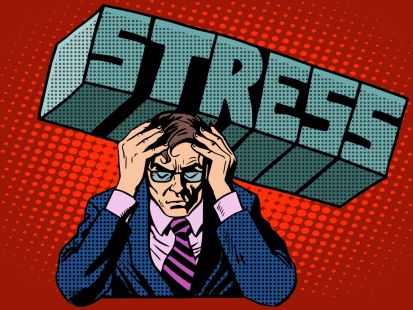
Mental health is closely intertwined with our ability to manage stress. Stress can have a huge impact on our mental health, and it is important to learn how to manage it.
The initial step in managing stress is recognising it. Stress can manifest itself in different ways.
Including physical symptoms, emotional reactions, and cognitive changes.
Paying attention to these signs can help you recognise when you are feeling stressed and take steps to address it.
When you recognise that you are feeling stressed, it is important to take action. This can include things like engaging in calming activities, talking to a friend or family member, and seeking professional help.
It is also important to determinate the sources of stress in your life. This can be anything from work or school to a difficult relationship. Identifying the source of your stress can help you find ways to manage it.
n some cases, it may be helpful to make lifestyle changes. This can include things like exercising regularly, getting enough sleep, and eating a balanced diet. These can all help to reduce your stress levels and improve your overall mental health.
Finally, it is important to learn effective coping skills. This can include things like deep breathing, progressive muscle relaxation, and mindfulness. These coping skills can help you manage your stress in the moment and in the long term.
Managing stress is an important part of maintaining good mental health. By recognising the signs and sources of stress, taking action, making lifestyle changes, and using effective coping skills, you can better manage stress and improve your overall mental health.
Identifying Your Stressors
Identifying your stressors is an important step in taking control of your mental health. Stress can have a major impact on our mental and physical health, and it is important to be aware of what our stressors are and how they affect us.
There are a few different ways that you can identify your stressors. Try to pay attention to your body’s physical responses when you are in a stressful situation. Common physical responses to stress include tightness in the chest, increased heart rate, and shallow breathing.
Paying attention to these physical responses can alert you to the potential presence of stress. Another way to identify stressors is to observe your emotional responses. Common emotional responses to stress include fear, anger, and frustration. Paying attention to these emotional responses can help you to pinpoint what is causing your stress.
Journaling is also a great way to identify your stressors. Writing down your thoughts and feelings can help you to identify patterns in your emotions and reactions.
Additionally, writing down the events that trigger your stress can help you to identify the source of your stress. You can also talk to a mental health professional about your stressors.
A mental health professional can help you to identify the root causes of your stress and provide strategies for managing it.
Finally, it is important to recognise that not all stress is bad. Some stress can be beneficial, as it can motivate us to take action and help us to reach our goals. Identifying the type of stress that you are experiencing can be helpful in managing it.
In summary, identifying your stressors is an important part of taking control of your mental health. Paying attention to your physical and emotional responses, journaling, and talking to a mental health professional can all be helpful in identifying your sources of stress.
Additionally, it is important to remember that not all stress is bad and that it can be beneficial in the right circumstances.
Developing Stress Management Strategies
Stress is a part of everyday life, and we all have to find ways to manage it. Developing stress management strategies can help you to better cope with the stressors in your life.
First, it is important to identify what is causing the stress in your life. You can do this by keeping a journal and writing down the things that are causing you stress. Once you have identified what is causing your stress, you can begin to develop strategies to help you cope.
One strategy is to practice relaxation techniques such as deep breathing, progressive muscle relaxation, and meditation. These techniques can help to reduce your stress levels and help you to focus on the present moment.
Another strategy is to practice mindful eating.
This involves being aware of the food you are eating and paying attention to how it tastes, smells, and feels in your mouth. This can help to reduce stress levels and help you to enjoy your meals.
It is also important to practice self-care. This involves taking time for yourself and doing something that you enjoy. This could be taking a walk, reading a book, listening to music, or spending time with friends and family.
Finally, it is important to take breaks throughout the day. This can help to reduce stress levels and give you an opportunity to relax and refocus.
Developing stress management strategies can help you to better cope with the stressors in your life. By identifying what is causing your stress, practising relaxation techniques, mindful eating, self-care, and taking breaks, you can reduce your stress levels and help you to better manage your mental health.
Engaging in Self-Care

Engaging in Self-Care is a crucial part of taking control of your mental health. Self-care is any activity that we do deliberately in order to take care of our mental, physical, and emotional health. It can help us reduce stress, cope with difficult emotions, and improve our overall wellbeing.
When practising self-care, it is important to take time for yourself and focus on what works for you. This can include activities such as meditating, journaling, exercising, spending time outdoors, or engaging in creative activities.
It can also include activities that you find enjoyable and that make you feel relaxed. It is also important to make sure that you are taking care of your basic needs, such as getting enough sleep, eating well, and maintaining a healthy lifestyle.
This can help you feel more motivated and energized, which will make it easier to engage in self-care activities. In addition to activities that you can be enjoyable, it is also important to engage in activities that challenge you and help you grow. This can include learning a new skill, pushing yourself to try something new, or pushing yourself to be more assertive.
It is also important to make sure that you are engaging in self-care activities regularly. This can look different for everyone, but it is important to make sure that you are taking time to focus on yourself and your wellbeing.
Finally, it is important to remember that self-care is not selfish or a one-time thing. It is something that should be practised regularly in order to maintain a healthy lifestyle and wellbeing.
Taking time to practice self-care can help you feel more connected to yourself and to the world around you.
Acknowledging Your Feelings

Most people tend to push their feelings away, thinking that they’re too much to take on. We often try to ignore our feelings, thinking that if we just don’t talk about them or think about them, they’ll go away. But the truth is, our feelings are just part of who we are, and we can’t just ignore them.
Acknowledging your feelings is an important step in taking control of your mental health. It can be difficult to recognise and accept our feelings, and it can be even harder to talk about them. But it’s important to understand that all feelings are valid, and that it’s healthy to express them.
Start by taking some time to really think about how you’re feeling. Think about the last couple of days and weeks, and think about how you’ve been feeling. Ask yourself questions like: what is my emotional state right now? What kind of feelings am I experiencing?
What kind of thoughts am I having?
Once you’ve identified how you’re feeling, try to name the emotion. It’s important to be able to specify the emotion and give it a name. Once you’ve identified the emotion, try to explore it a bit. Ask yourself why you’re feeling this way, what might be causing it, and what it’s telling you.
Once you’ve acknowledged your feelings, it’s important to talk to someone about them. Talking to someone can help you to process and understand your feelings, and can provide a space to explore your thoughts and emotions.
Talking to someone you trust can also help to reduce feelings of isolation and can provide you with support.
Finally, remember that it’s OK to feel your feelings. It’s OK to be sad, angry, scared, or anxious. It’s alright to feel overwhelmed. Acknowledging your feelings is an important part of taking control of your mental health.
Taking Time for Yourself
Taking time for yourself is an important component of taking control of your mental health. It is easy to neglect our own needs when the world around us is demanding our attention, but taking a break from the chaos and giving yourself dedicated time to relax and reset is essential for managing our mental health.
First, it is important to identify what “taking time for yourself” means to you. This can look different for everyone, but it should be something that you look forward to and that makes you feel relaxed and refreshed. Some examples can include reading a book, going for a walk, exercising, listening to music, or meditating. It should be something that helps you recharge and reconnect with yourself.
Second, it is important to be intentional and consistent when taking time for yourself. Making time for yourself should be a priority, and it is important to find time in your daily routine to make it happen. You can start by setting aside a few minutes every day to do something for yourself, and gradually increase the amount of time you dedicate to yourself as you go.
Third, it is important to discover activities that make you feel relaxed and connected to yourself. This could be anything from yoga to painting to journaling. Experiment with different activities to find out which ones you enjoy the most, and use them as an opportunity to connect with yourself.
Finally, it is important to be patient and kind to yourself when taking time for yourself. Taking care of your mental health can be a difficult process, and it is important to be mindful of your progress. Remind yourself that it is okay to take time for yourself, that it is not something you should be ashamed of.
By taking the time to be intentional, consistent, and kind to yourself, you can take control of your mental health and ensure that you are taking the time to care for yourself. Taking care of yourself is the first step to taking control of your mental health, so make sure to make it a priority in your life.
Seeking Balance
Taking control of your mental health is an important part of maintaining a balanced life. It is important to recognise when your mental health is out of balance and take steps to restore it.
In this chapter, we will discuss strategies for finding and maintaining balance in your life and mental health.
To begin, it is important to recognise the signs of an imbalance in your mental health. These may include changes in mood, increased stress and anxiety, difficulty with concentration and focus, and changes in your sleeping and eating habits. If you notice any of these changes, it is important to take steps to restore balance.
The first step to restoring balance is to make time for yourself. Many of us have busy lives, and it can be easy to put ourselves at the bottom of our own list of priorities. It is important to make time each day to do something that you enjoy, such as reading, exercising, or taking a walk.
This will help to reduce stress and anxiety, and can help to restore balance in your mental health.
The next step is to practice mindful breathing. Mindful breathing can help to reduce stress and anxiety, and can help you to focus and stay present in the moment. Taking a few moments each day to practice mindful breathing can help to restore balance.
It is also important to recognise your own needs and feelings. Try to be aware of what you need to feel better and make time to do those things. This could include getting enough sleep, eating healthy meals, and engaging in activities that you enjoy.
Finally, it is important to reach out for help if needed. If you find that you are unable to restore balance in your mental health on your own, it is important to seek professional help.
A therapist or other mental health professional can help you to implement strategies for restoring balance and managing your mental health. Seeking balance in your life and mental health is essential for living a healthy and happy life.
By recognising the signs of an imbalance, making time for yourself, practising mindful breathing, and reaching out for help if needed, you can take steps to restore balance and take control of your mental health.
Conclusion
In conclusion.
Taking Control of Your Mental Health: A Patient's Guide is a tool to help you become a proactive participant in your own treatment. It provides you with the necessary knowledge and resources to assess, diagnose, and manage your mental health.
It gives you the necessary tools to take control of your mental health, and to actively engage in your own treatment. Likewise, it is important to remember that you are not alone in this journey.
There is a wide range of resources available to you, including mental health professionals, support groups, online resources, and self-help books. It is important to be proactive in seeking out these resources, and to take advantage of them to help you on your journey.
Having a mental health disorder can have a serious impact on many aspects of your life, and managing the condition can be time-consuming and overwhelming.
Mental health conditions such as depression, anxiety, bipolar disorder, PTSD, and schizophrenia can all affect how we think, feel, and behave.
It’s important to remember that mental health conditions are real medical conditions like any other disorder or illness that needs to be taken seriously. Quality medical care combined with self-care strategies like therapy, mindfulness practice, regular exercise, adequate sleep, healthy nutrition, stress management techniques are all proven ways to cope with mental health issues.
With the right resources and care, anyone can learn to manage their medical condition effectively while continuing to live a fulfilling life.
Finally, it is important to remember that mental health is a complex process, and that it involves many different factors. It is important to be aware of all the various components and to seek out the help that you need. It is also important to be familiar with the resources available to you and to make use of them.
Appendix
Organizations Mental Health America: Mental Health America is an organization that promotes mental health awareness and works to increase understanding and availability of mental health services. They offer a variety of resources, including support groups, education, and advocacy.
National Alliance on Mental Illness (NAMI): NAMI is a non-profit organization dedicated to providing education, support, and advocacy for people with mental illness. They offer a variety of resources, including helplines, support groups, and educational opportunities.
American Psychiatric Association (APA): The APA is the leading organization of psychiatrists in the United States. They offer a variety of resources, including educational materials, research, and advocacy.
Support Groups
Depression and Bipolar Support Alliance (DBSA): DBSA is a non-profit organization dedicated to supporting people with mental illness. They offer a variety of resources, including support groups, educational materials, and advocacy.
Anxiety and Depression Association of America (ADAA): ADAA is a non-profit organization dedicated to providing education, support, and advocacy for people with anxiety and depression. They offer a variety of resources, including support groups, educational materials, and advocacy.
National Suicide Prevention Lifeline: The National Suicide Prevention Lifeline is a 24-hour hotline dedicated to providing support and resources to people in crisis. They offer a variety of resources, including crisis counselling, support groups, and educational materials.
Websites Mental Health First Aid USA: Mental Health First Aid USA is a website dedicated to providing education, support, and advocacy for people with mental illness. They offer a variety of resources, including educational materials, support groups, and a directory of
Mental health providers.
Substance Abuse and Mental Health Services Administration (SAMHSA): SAMHSA is an organization dedicated to providing education, resources, and support for people with mental illness.
They have a variety of resources, including educational materials, support groups, and a directory of mental health providers.






